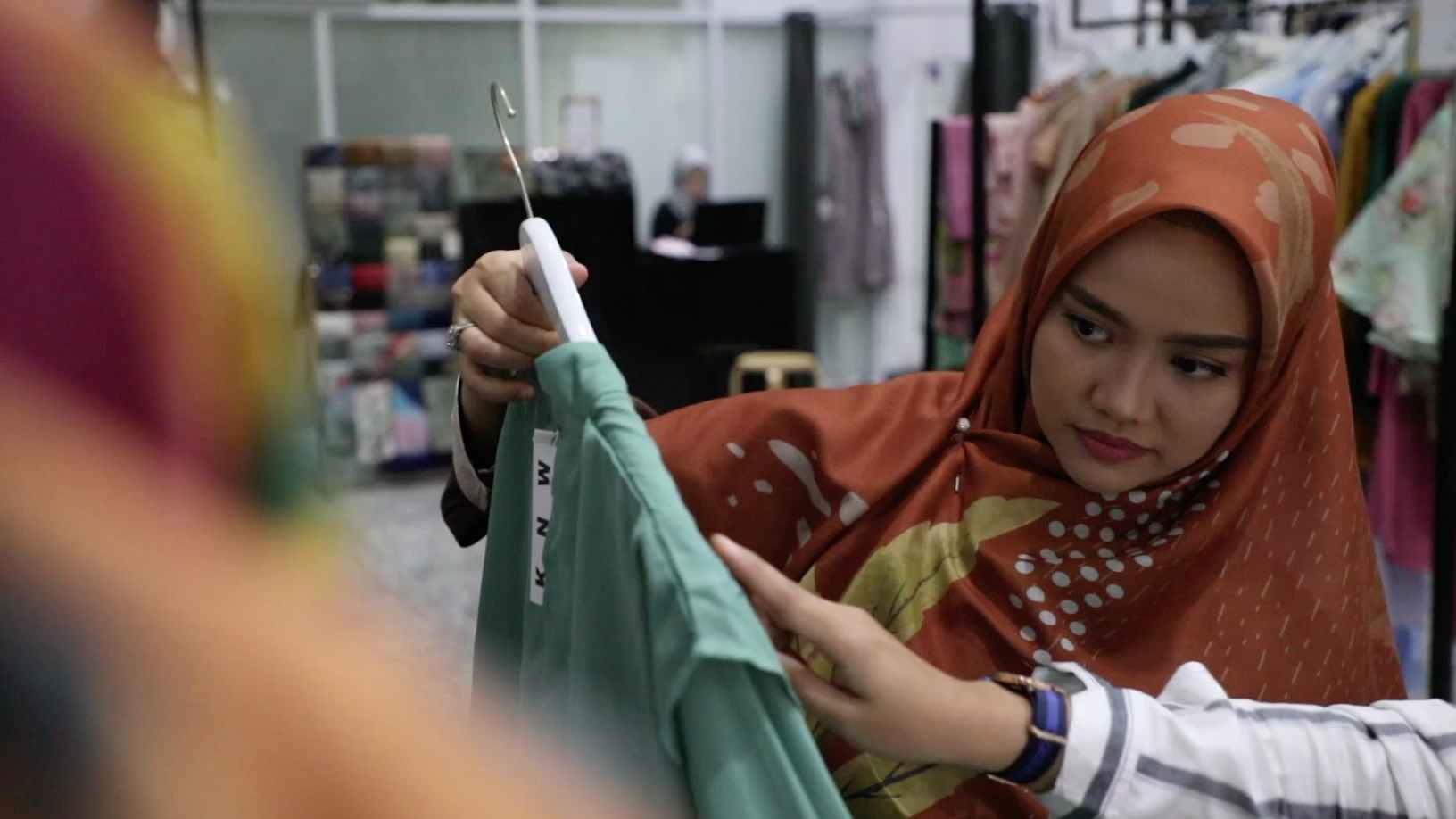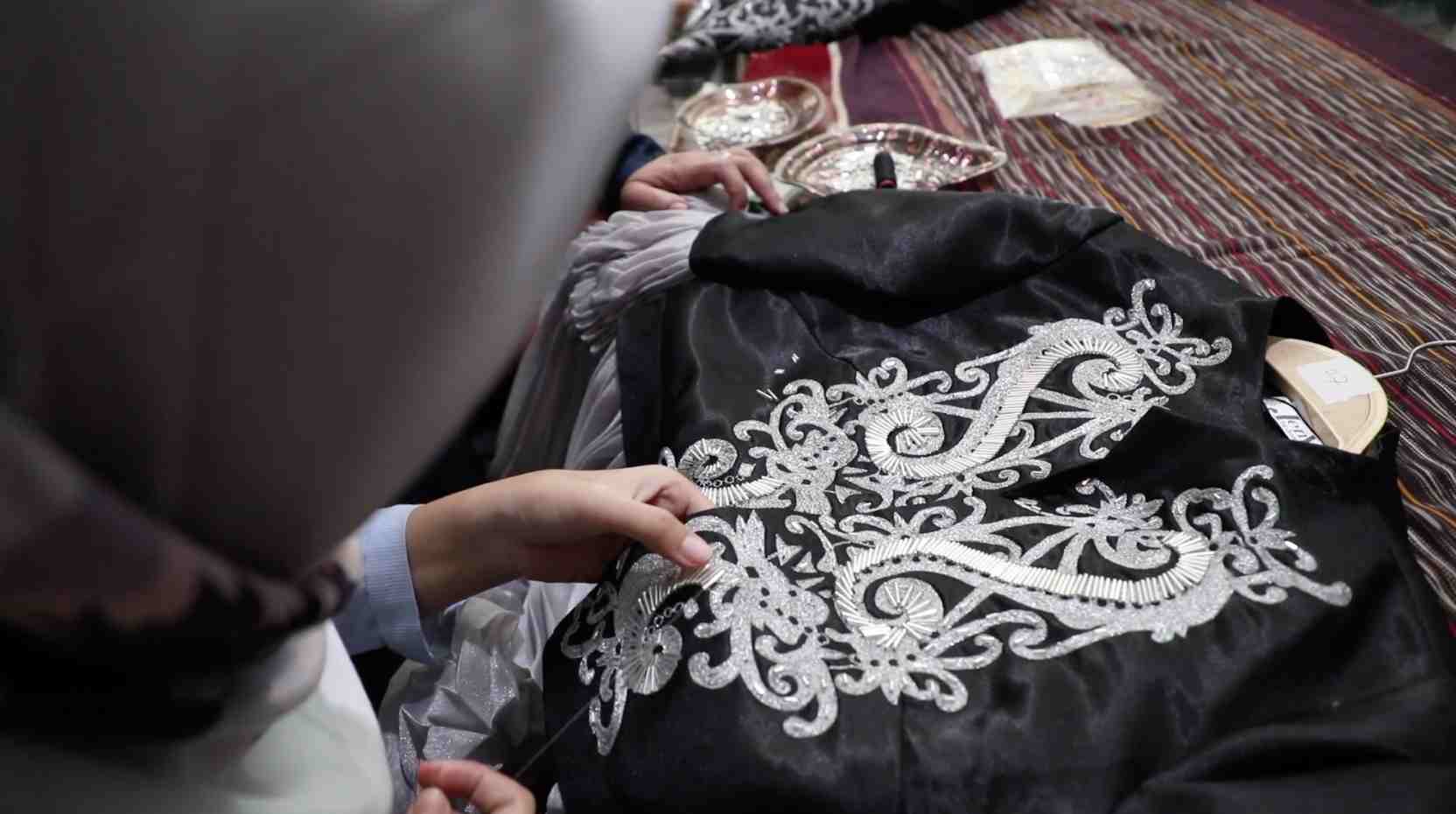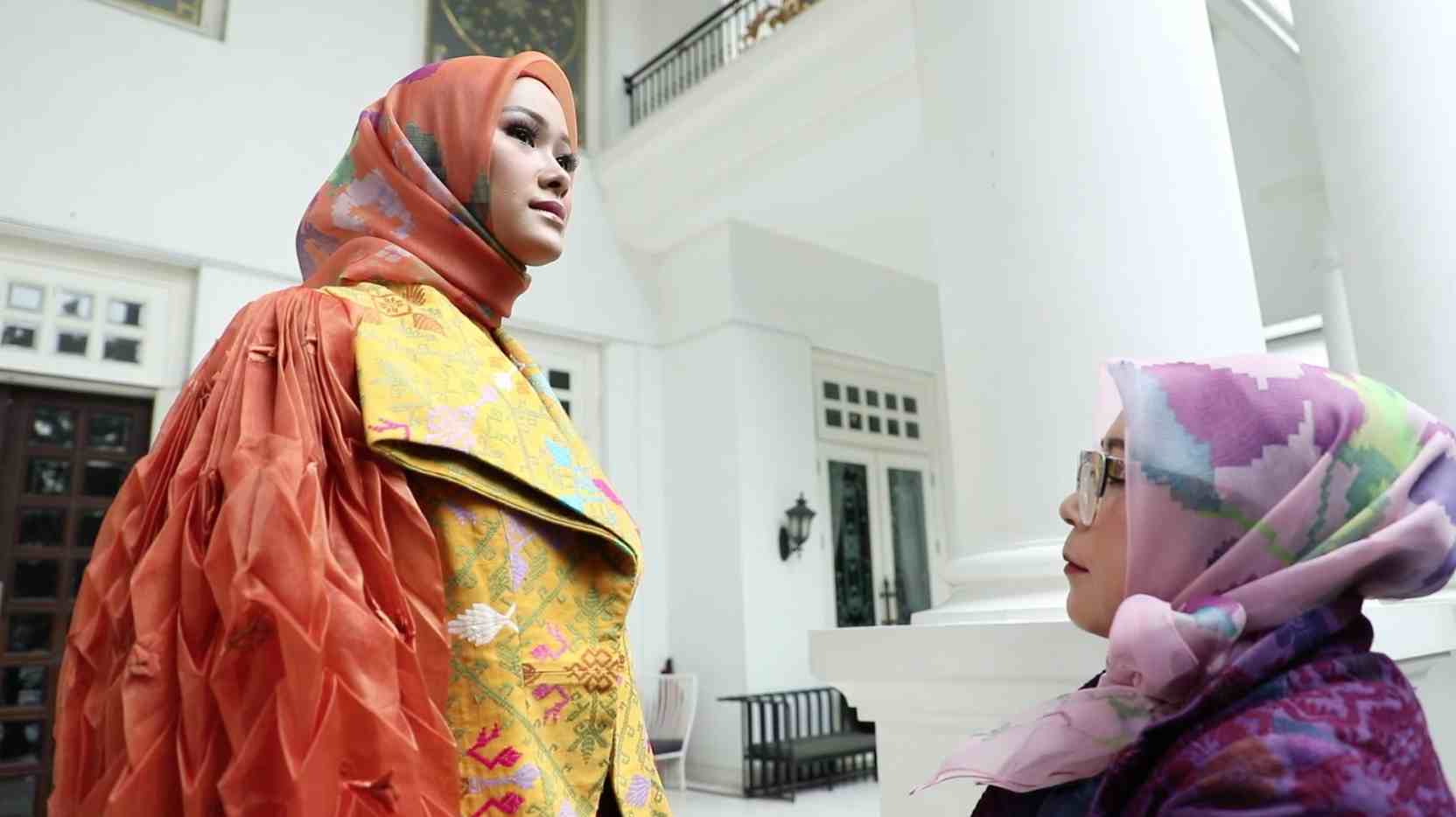
Fashion
11:48, 18-Feb-2019
Modest fashion now trending in Indonesia
By Silkina Ahluwalia

Jeny Tjahyawati has been in the fashion industry for more than 15 years. She started her business right out of university and her designs focus on modest clothing, also known as covered-up fashion. In one of the world’s largest Muslim-majority countries, Jeny has seen the modest fashion industry grow immensely, from just a few players when she started to hundreds of local brands specializing in Muslim fashion.
"Muslim women make up the majority of the population in Indonesia and we are capitalizing on that. There are a lot of Muslim communities here and we are one of the biggest markets in the world. There is still a lot of potential here. Designers are now looking to promote our traditional Indonesian fabric," said Jeny.
The Indonesian government aims to make Indonesia a hub for modest fashion by 2020.
A research by the Global Islamic Economy shows that Muslim women spent an estimated 44 billion U.S. dollars on modest clothing in 2017 – a number that is only expected to increase every year.
The Ministry of Industry continues to support the growth of new entrepreneurs in the sector through technical guidance programs and expert assistance.
Of the 750,000 small and medium industries in Indonesia, 30 percent are in the Muslim fashion industry.

Local designers are focusing on designs that showcase Indonesia's uniqueness. /CGTN Photo
Local designers are focusing on designs that showcase Indonesia's uniqueness. /CGTN Photo
Awareness of Islam among the middle-class led many to adjust their modern lifestyle to the Islamic tradition. This has become a growth stimulus for the Muslim fashion trade in the global arena.
The trend is not restricted to Muslim-majority nations, the growth of Muslim fashion has also spread to Europe.
Diajeng Lestari is the woman behind HiJup, a Muslim fashion empire that sells local designer products on their website with free worldwide shipping. That strategy has helped lift Indonesia's local designs to the global stage.
In 2016, HiJup participated in London Fashion Week, a monumental achievement for the company and for Indonesia.
HiJup exhibited items from Muslim Indonesian designers alongside key players in the fashion industry such as Dolce & Gabanna and DKNY, among others.
"It is a very big opportunity in terms of market, for now there is no big global market leader in this segment," said Diajeng.

Jeny is one of the pioneers in Muslim fashion in Indonesia. /CGTN Photo
Jeny is one of the pioneers in Muslim fashion in Indonesia. /CGTN Photo
"I think Indonesia is a very promising emerging market," Diajeng added, "The consumer (base) is growing very fast. We are pursuing good brands. We like to wear conformable and beautiful clothes, and ethical ones too because of Islamic values."
According to Diajeng, Indonesia has the potential to become one of the fashion centers in the world, especially Muslim fashion because it has creative resources and abundant cultural heritage.
"We really understand that it is not only about wearing hijab or wearing clothes, but something that is in line with our Islamic values. Is it sustainable in terms of eco-living? Does it treat the labor (force) in a good way? So it has to be in line with Islamic values," said Diajeng.
Local designers are now designing pieces to raise the uniqueness of their products, those that can showcase Indonesia's diverse cultural beauty.

SITEMAP
Copyright © 2018 CGTN. Beijing ICP prepared NO.16065310-3
Copyright © 2018 CGTN. Beijing ICP prepared NO.16065310-3